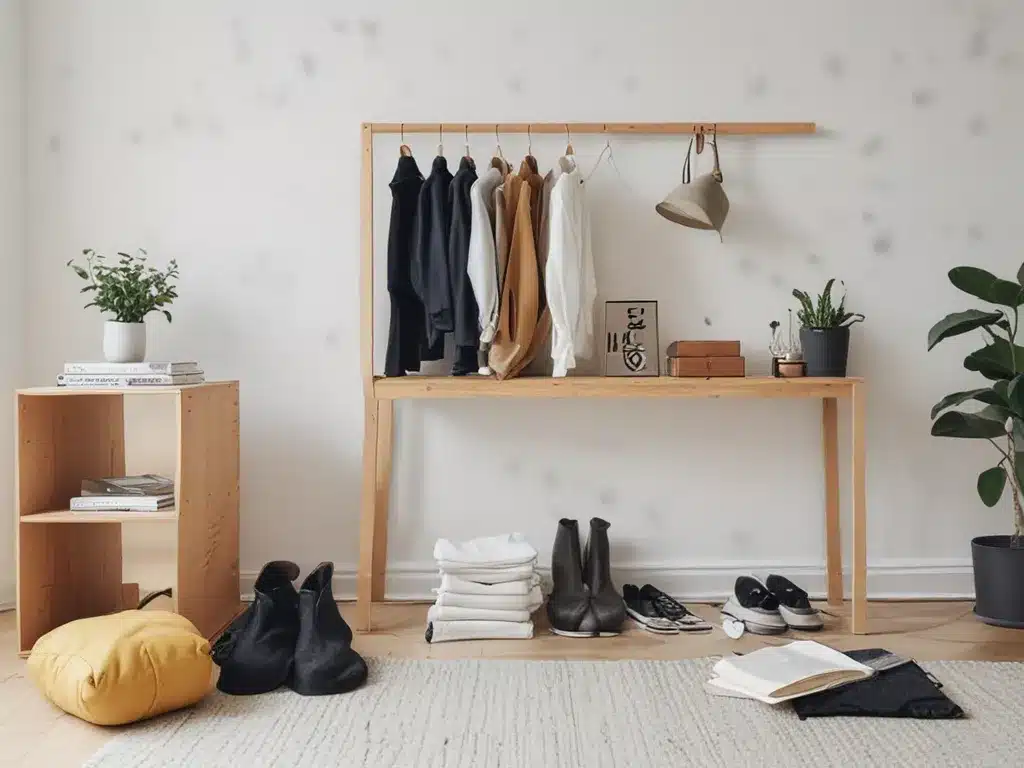What is Minimalism?
Minimalism is a lifestyle that focuses on keeping only the items you really need and reducing clutter. The goal is to own fewer possessions and live with more intentionality. Minimalism helps create space, both physically and mentally, by removing distractions and focusing on what’s essential.
Minimalists aim to own only items that are useful or bring joy. Everything else is seen as excess and clutter. The key is realizing that more possessions don’t necessarily lead to more happiness or fulfillment. Owning less allows you to focus on what’s important.
Minimalism extends beyond just material possessions. It can also apply to other areas of life like commitments, activities, relationships, and habits. The purpose is to remove anything that doesn’t add value so you can focus on what matters most.
Why Try Minimalism?
There are many potential benefits of minimalism:
- Less stress from clutter, overhead, and decisions
- More time since less time spent cleaning and shopping
- More money saved from reduced spending
- A clearer mind from lack of distractions and clutter
- Improved focus on goals and people rather than stuff
- Greater appreciation for meaningful possessions and experiences
- More freedom and flexibility from less stuff weighing you down
Minimalism helps identify what’s essential and guides you to focus time, energy, and money on those things. It removes distractions and clutter so you can concentrate on what fulfills and inspires you.
How to Become a Minimalist
Transitioning to minimalism takes thoughtfulness but can be broken down into a few key steps:
Assess Your Belongings
Go through your belongings and evaluate each item based on:
- Usefulness – Do I regularly use or need this item?
- Joy – Does this item spark positive emotions or memories?
- Quality – Is this item in good condition and well-made?
Be ruthless and honest. If an item isn’t useful, joy-sparking, or quality, consider removing it.
Remove Unneeded Items
Once you’ve evaluated items, it’s time to start minimizing. For each item you identified as unnecessary:
- Donate, sell, or gift items in good condition
- Recycle or trash broken, worn, or unusable things
- Organize and properly store items you want to keep
Removing excess stuff will immediately help declutter your space.
Establish New Habits
Changing behaviors going forward is crucial for maintaining minimalism:
- Avoid impulse purchases – delay desires and ask if an item is really needed
- Unsubscribe from marketing emails to reduce temptation
- Adopt a “one in, one out” rule when adding new items
- Keep surfaces and spaces clean and organized
- Schedule regular times to declutter
Maintain Long-Term
Sticking with minimalism requires ongoing habits:
- Continue assessing belongings and removing excess
- Fight accumulation creep by avoiding freebies/gifts you don’t need
- Review your impact and progress to reinforce benefits
- Find motivation by reading minimalist blogs, books, etc.
- Share your experience to inspire others
Tips for Success
Here are some key tips to make minimalism work for the long haul:
- Start small – tackle minimalism in phases vs. all at once
- Focus on what to keep, not what to remove – emphasize the positives
- Involve family – get input from others impacted by changes
- Don’t be too extreme – keep items that matter most, even if not “essential”
- Remember that minimalism reduces stress when done right
- Be flexible – minimalism looks different for everyone
The journey is what matters most. Start slowly, focus on progress over perfection, and stay positive along the way. The rewards of minimalism make the effort worthwhile.
Benefits of Living With Less
Why strive to own less? Here are some of the key benefits:
Reduced Stress
Excess stuff creates background mental clutter. Getting rid of unused items frees up mental space. Clean, open spaces also promote a sense of calm.
More Money Saved
Owning less means spending less. Extra money saved can be used for goals that add more meaning, like travel or retirement funds.
Improved Focus
Too many distractions make it hard to focus on what’s important. Minimalism helps identify and remove those distractions from your life.
Greater Appreciation
With fewer possessions to care for, you can better appreciate the items you truly value most. This selectivity creates gratitude.
Increased Time
Living with less frees up more time since you spend less time cleaning, shopping, organizing, and working to afford unneeded stuff.
Enhanced Creativity
Physical and mental clutter stifle creativity. Decluttering provides a clearer mind for imagination, problem-solving, and inspiration.
More Freedom
Excess possessions can feel heavy and anchoring, weighing you down both physically and mentally. Owning less creates lightness and mobility.
Adopting a minimalist lifestyle takes effort but yields many rewards. The benefits above are well worth working toward. Start small, focus on progress over perfection, and find ways to embrace minimalism that are right for you.







